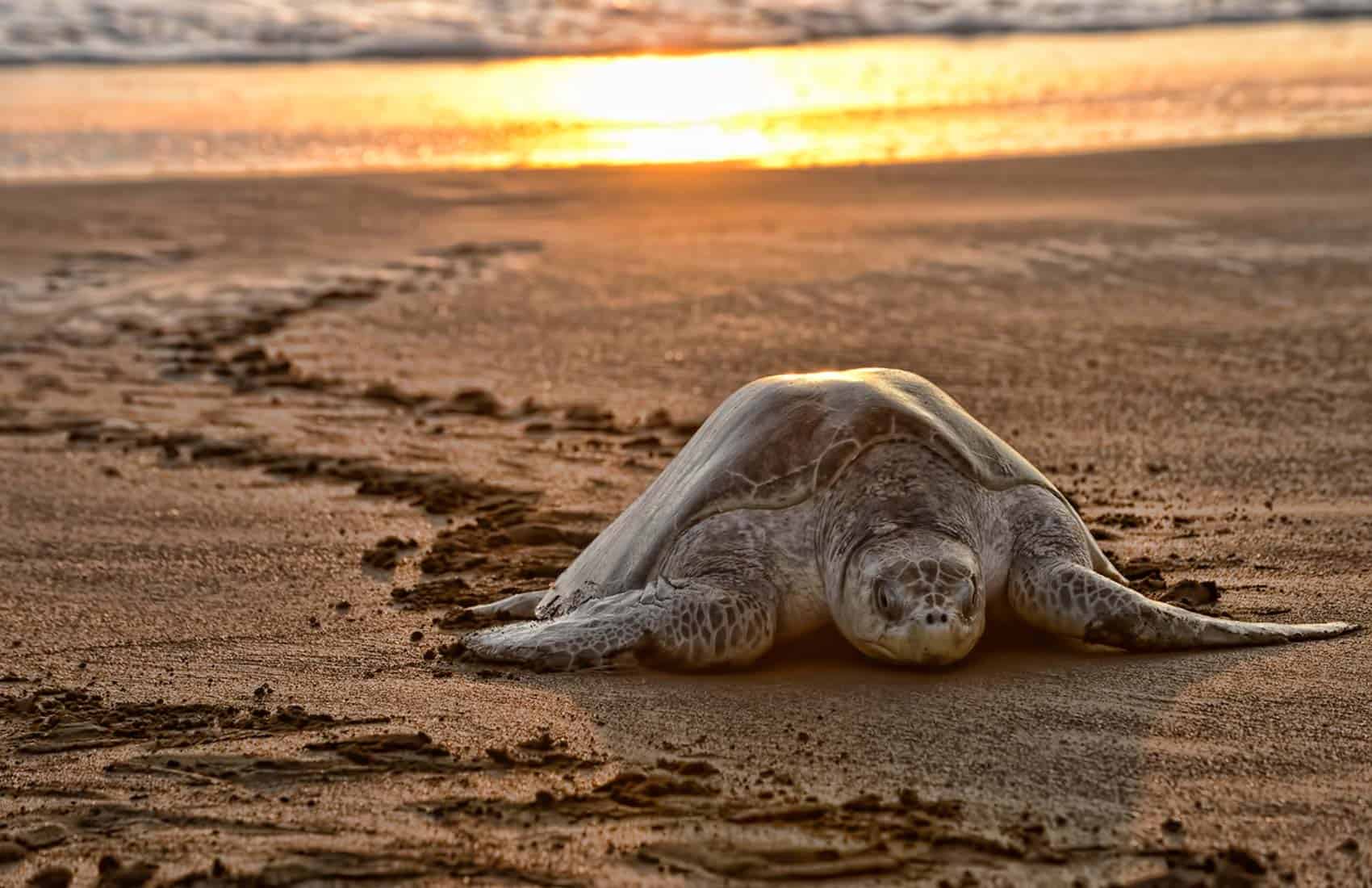Nothing can stop the march of nature, not even an internationally known cold-blooded murder case.
Moín Beach is still recovering from the slaying of sea turtle conservationist Jairo Mora, who was killed by poachers on the northern Caribbean beach last May, but starting in February, endangered leatherback turtles will start flocking to the beach again to lay their eggs.
“So far there is no plan, no security, nothing,” said Vanessa Lizano, a friend and colleague of Mora’s. “When the turtles come all the eggs will be taken by poachers.”
During the last leatherback season, Moín Beach was converted from a tropical turtle haven into a militarized zone. Bands of armed poachers looking to cash in by selling turtle eggs – a believed aphrodisiac – for $1 a pop took over the area. Conservationists were routinely threatened and held at gunpoint for rescuing turtle nests and reburying them out of poachers’ hands.
The conflict ended with Mora’s killing, and the tragedy drew international attention to the growing insecurity in the region. Despite the pressure, poachers still ruled the beach for the rest of turtle-nesting season.
Without Mora to patrol, Lizano continued walking the beach with another volunteer, but threats continued. Last November, Lizano was attacked on the beach in broad daylight while delivering food to a friend. After the attack, Lizano says she will not walk the beach without help from police.
“We don’t have any plans to do that,” said Jacklyn Rivera, the technical assessor for the Environment Ministry’s (MINAE) Vice Ministry of Waters and Oceans, when asked about guarded beach patrols. “We are working on something integrated with MINAE, the coast guard, police and the Education Ministry. This is not just our responsibility, it is everyone’s.”
Though police and the coast guard will sporadically lead operations to sweep the beach, environmentalists believe that a standing patrol of MINAE control and protection agents is the only way to protect turtles and environmentalists.
“Conservationists can’t be putting themselves between criminals and turtles,” said Didiher Chacón, Costa Rica’s director for the Wider Caribbean Sea Turtle Network. “This problem will not be solved until they send members of the government to protect the turtles.”
Chacón and Lizano have teamed up with a group of other prominent conservationists to push for Moín’s designation as a national park. The proposal would carve out 10,000 hectares of public property along the coast, 80 percent of which would be ocean, for complete environmental protection.
With help from Mario Boza, an early co-founder of Costa Rica’s national park system, the group has drafted a bill for consideration in the Legislative Assembly. If passed, Moín Beach would become a national park financed by a public trust.
“The idea is that people could donate to this trust and that money would be used exclusively for the park,” Boza said. “The park could use that to contract park rangers and protect the park, but it wouldn’t be taken and used in any other part of the government.”
The idea is not new. Almost immediately after Mora’s death, environmentalists called for a new national park to be created there. After several public meetings last year, MINAE officials seemed to favor the idea, but ended up changing their minds.
“A protected area with a high level of restriction will not work in Moín,” Rivera said. “There is a community living there that would need to be removed and that is not our position.”
In Costa Rica, the first 200 meters of coastline are a public maritime zone. Private beaches do not exist, and people without property will sometimes set up homes on these public lands. The Moín community Rivera refers to is a neighborhood of squatters, albeit an entrenched group of squatters.
According to a December social study of the area by the Tropical Agricultural Research and Higher Education Center, most people living in Moín have been there for at least 10 years and oppose the installation of a protected area.
Though the squatters would have to move, environmentalists argue that a national park would bring jobs and tourism into the zone, empowering the communities.
“Costa Rica learned a long time ago that investing in the environment pays dividends,” said Monica Araya, president of the Regional Center for Competitive Business and Moín National Park proponent. “National parks bring tourism and jobs. Our green image has made us who we are today.”
With the upcoming Feb. 2 presidential and legislative elections in Costa Rica, conservationists say they will not present their bill until at least May, when a new administration takes over. In the meantime, MINAE officials are still conducting studies for the formation of a less-strict protected area, but nothing will be ready for the start of turtle season.
“I’m just devastated,” Lizano said. “At this point it’s the poachers who rule the beach and we can’t do anything until the police or the government try to stop it.”






